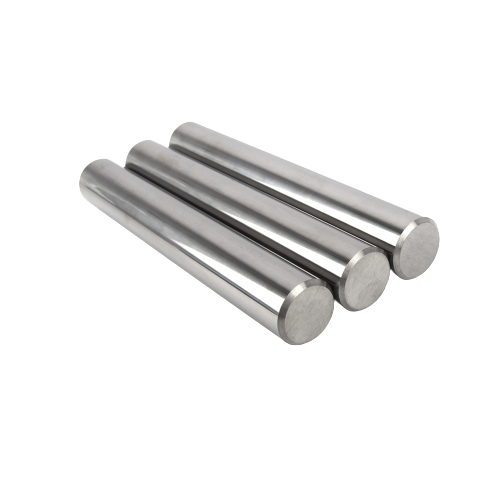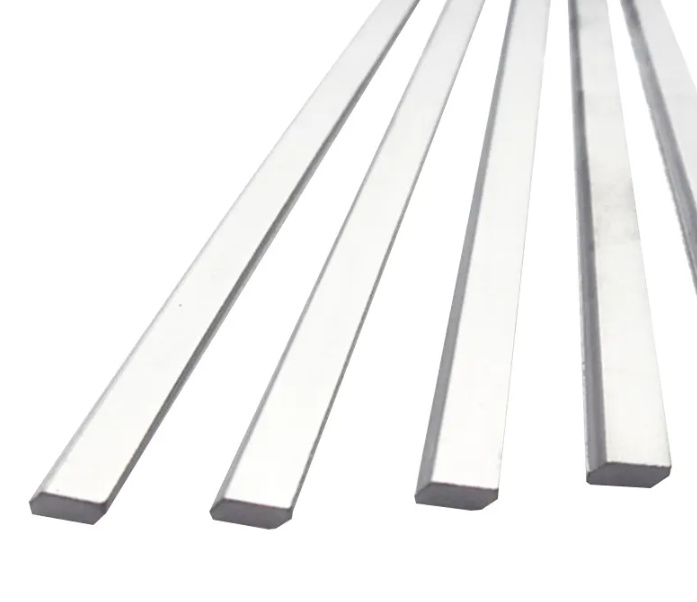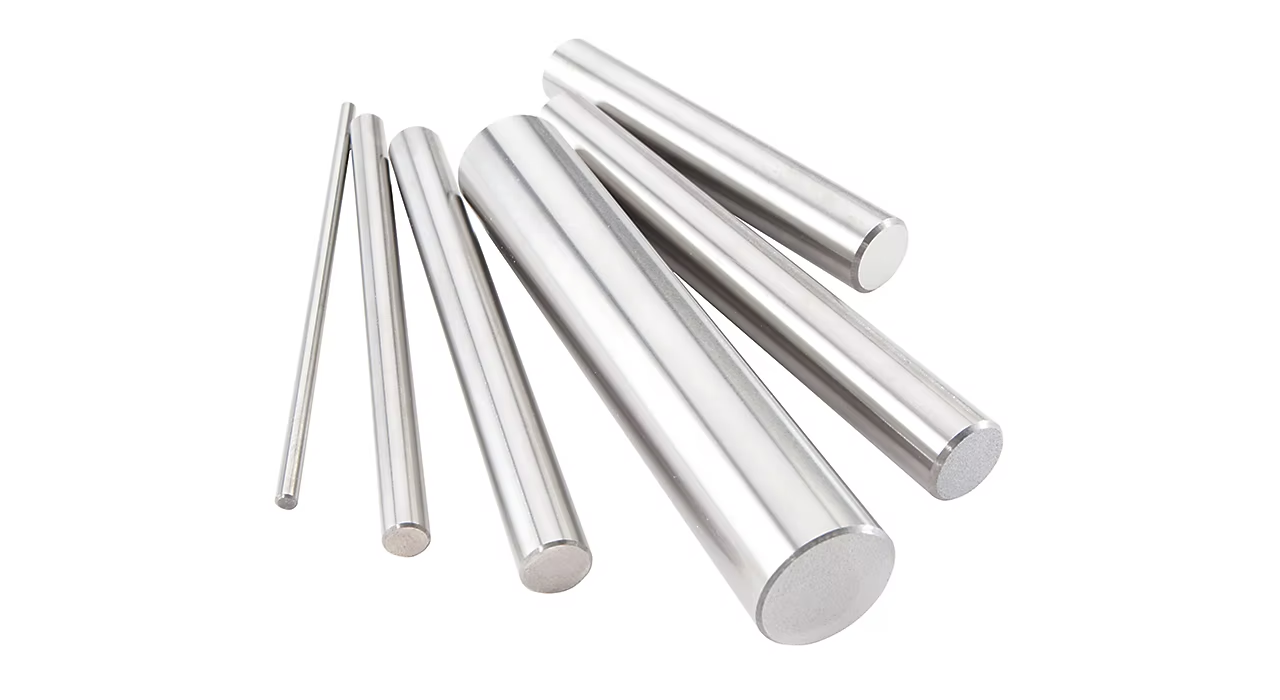産業用工具や耐摩耗部品に関しては、 超硬プレート は、最も汎用性が高く、価値のある素材のひとつです。金属加工、木工、重機の製造など、超硬プレートはなくてはならないものです。しかし、超硬プレートとは一体何なのか、なぜ様々な用途でこれほど重要なのか。
このガイドでは、超硬プレートについて知っておくべきことをすべてご紹介します。超硬プレートの種類、用途、特性、組成、その他もろもろ。この記事を読み終える頃には、超硬プレートについて徹底的に理解し、ニーズに合ったものを選ぶ方法を身につけることができるだろう。
超硬プレートとは?
タングステンカーバイトプレートとも呼ばれる超硬プレートは、主にタングステンと炭素原子からなる硬くて耐久性のある化合物である炭化タングステンから作られた平らな長方形の材料です。耐摩耗性、硬度が高く、過酷な条件にも耐えられるため、さまざまな産業用途で使用されている。
しかし、それだけにとどまらない。カーバイド・プレートはタフなだけでなく、驚くほど万能なのだ。バターナイフでダイヤモンドを切ろうとするのを想像してみてください。超硬プレートはそのような耐久性と強度を備えているのです。
なぜ超硬プレートが重要なのか?
超硬プレートは、製造業の世界では縁の下の力持ちだ。その重要性は、汗をかくことなく重労働をこなす能力にある。硬い材料の加工から機械の摩耗部品としてまで、超硬プレートは多くの工業プロセスのバックボーンとなっている。
超硬プレートは、丈夫で信頼性が高く、長持ちする産業界の主力製品です。金属の穴あけ、切断、成形のいずれにおいても、超硬プレートは正確で効率的な作業を可能にします。
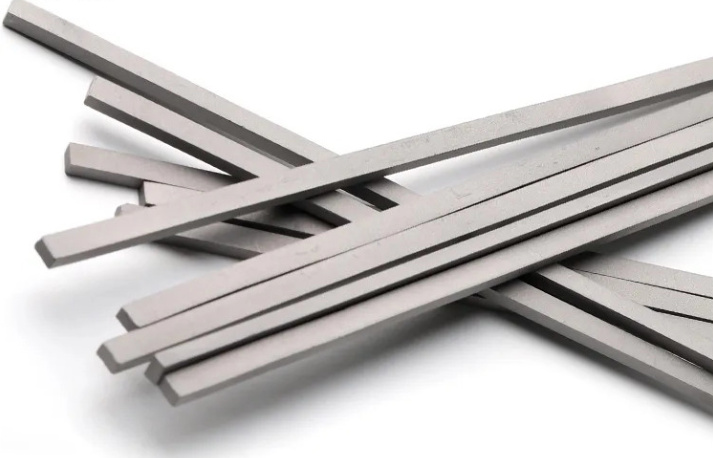
種類 超硬プレート
すべての超硬プレートが同じように作られているわけではありません。この違いを理解することが、お客様のニーズに合ったものを選ぶ鍵となります。
超硬焼結板
焼結カーバイド・プレートは、タングステン・カーバイドの粉末を金型に圧縮し、高温に加熱して作られる。このプロセスは、緻密で耐久性のあるプレートで、その結果、一緒に粒子を結合します。これらのプレートは、高い硬度と耐摩耗性を必要とする用途でよく使用されます。
超硬プレート
研削済み超硬プレートは、研削によってさらに加工された焼結プレートです。この追加工程により、プレートの表面仕上げと寸法精度が向上し、精密用途に最適です。
コーティング超硬プレート
コーティングされた超硬プレートは、炭化チタンや酸化アルミニウムなどの他の材料の層で覆われ、特定の用途における性能を向上させます。コーティングは、耐摩耗性の向上、摩擦の低減、腐食に対する追加の保護を提供することができます。
超硬合金プレート
超硬プレートは、超硬粒子を金属バインダー(通常はコバルト)で結合させた複合材料である。この組み合わせは硬度と靭性のバランスが良く、幅広い用途に適しています。
微粒超硬プレート
超微粒子超硬プレートは、超微粒子の超硬合金から作られています。粒径が小さいほど硬度が高くなるため、切れ味と長寿命が求められる切削工具に最適です。
冷間圧造金型用超硬プレート
これらのプレートは冷間圧造金型用に特別に設計されており、室温で金属を成形する際の高い圧力と応力に耐える必要があります。
プレス金型用超硬プレート
冷間圧造金型と同様に、プレス金型にも高い応力と摩耗に耐える材料が必要です。プレス金型用の超硬プレートは、優れた耐摩耗性と寸法安定性を備えています。
切削工具用超硬プレート
超硬プレートは、鋸刃、ドリル、フライスカッターなどの切削工具の製造に一般的に使用されています。その硬度と耐摩耗性は、硬い材料を切断するのに理想的である。
摩耗部品用超硬プレート
摩耗部品とは、ベアリング、ブッシング、ライナーなど、常に摩擦や摩耗が発生する部品のことです。超硬プレートは、部品の寿命を延ばし、メンテナンスコストを削減するために、このような用途によく使用されます。
カスタマイズされた超硬プレート
特殊な用途の場合、超硬プレートは特定の要件を満たすために、サイズ、形状、組成の面でカスタマイズすることができます。カスタマイズにより、プレートは使用目的に応じて最適な性能を発揮します。
超硬プレートの用途
超硬プレートは、その耐久性、硬度、耐摩耗性により、さまざまな産業で使用されています。ここでは、最も一般的な用途をいくつか紹介する。
| 申し込み | 説明 |
|---|---|
| 金属切断 | 超硬プレートは金属加工用の切削工具に使用される。 |
| 木工 | 木工用の鋸刃やルータービットに使用。 |
| 鉱業 | 超硬プレートは、岩石や鉱石を切断するための採掘工具に使用される。 |
| 建設 | 建材の切断や成形のための建設機械に使用される。 |
| 航空宇宙 | 超硬プレートは航空宇宙部品の製造に使用される。 |
| 自動車 | 高い耐摩耗性が要求される自動車部品の製造に使用される。 |
| 石油・ガス | 超硬プレートは、石油・ガス産業の掘削工具や機器に使用されている。 |
| 農業 | 土壌を切ったり耕したりする農業機械に使用される。 |
| 医療機器 | 超硬プレートは手術器具や医療機器に使用されている。 |
| リサイクル | リサイクル機械に使用され、材料を切断、細断する。 |
材料特性 超硬プレート
超硬プレートは、その優れた材料特性で知られ、幅広い用途に適しています。ここでは、その主な特性のいくつかを見てみよう:
| プロパティ | 説明 |
|---|---|
| 硬度 | 超硬プレートは非常に硬く、85~95HRAのものが多い。 |
| 耐摩耗性 | 摩耗しやすい環境でも優れた耐摩耗性を発揮する。 |
| タフネス | その硬さにもかかわらず、超硬プレートは優れた靭性を持ち、衝撃に耐えることができる。 |
| 耐食性 | 一部の超硬プレートは耐腐食性があり、過酷な環境での使用に適している。 |
| 熱安定性 | 超硬プレートは、その特性を失うことなく高温に耐えることができる。 |
| 電気伝導率 | 超硬プレートは導電性に優れ、特定の用途では有利に働く。 |
| 磁気特性 | Some carbide plates exhibit magnetic properties, which can be useful in specific applications. |
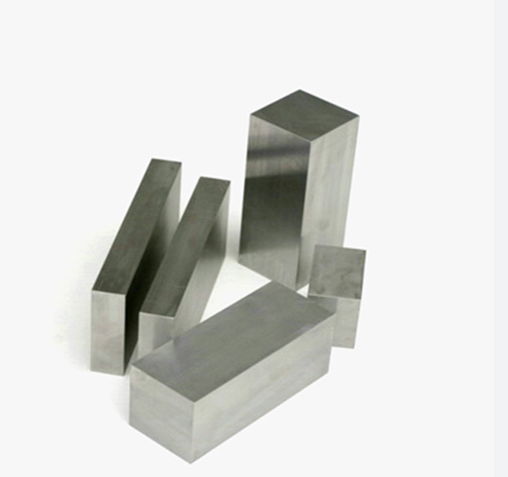
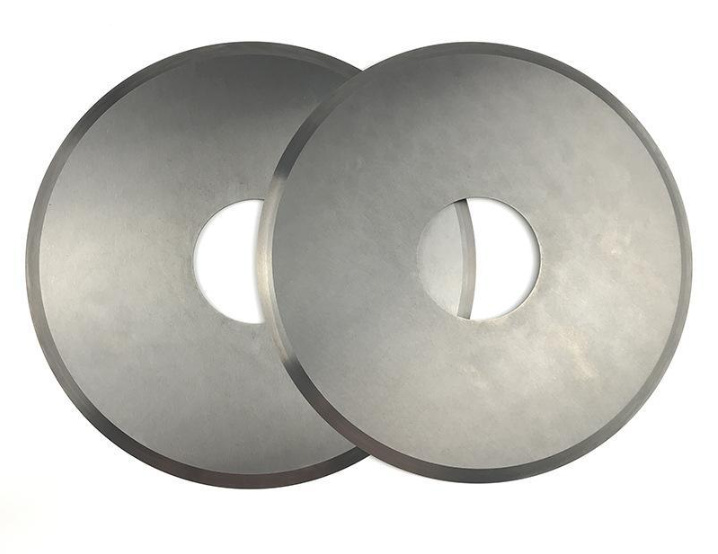
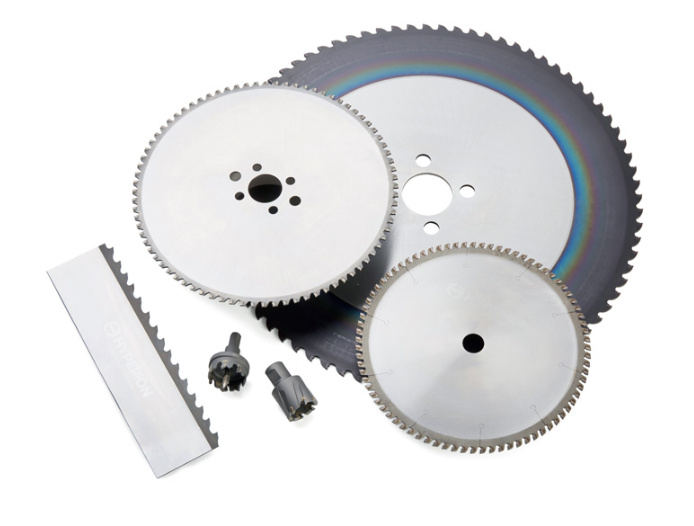
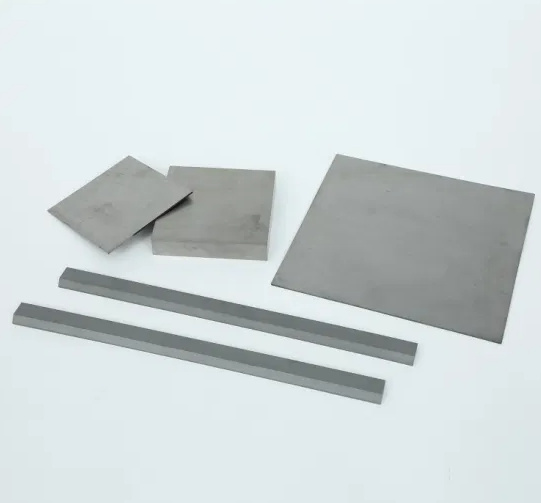
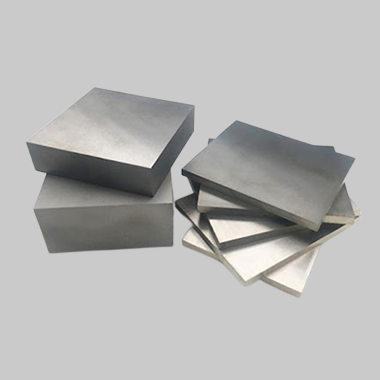
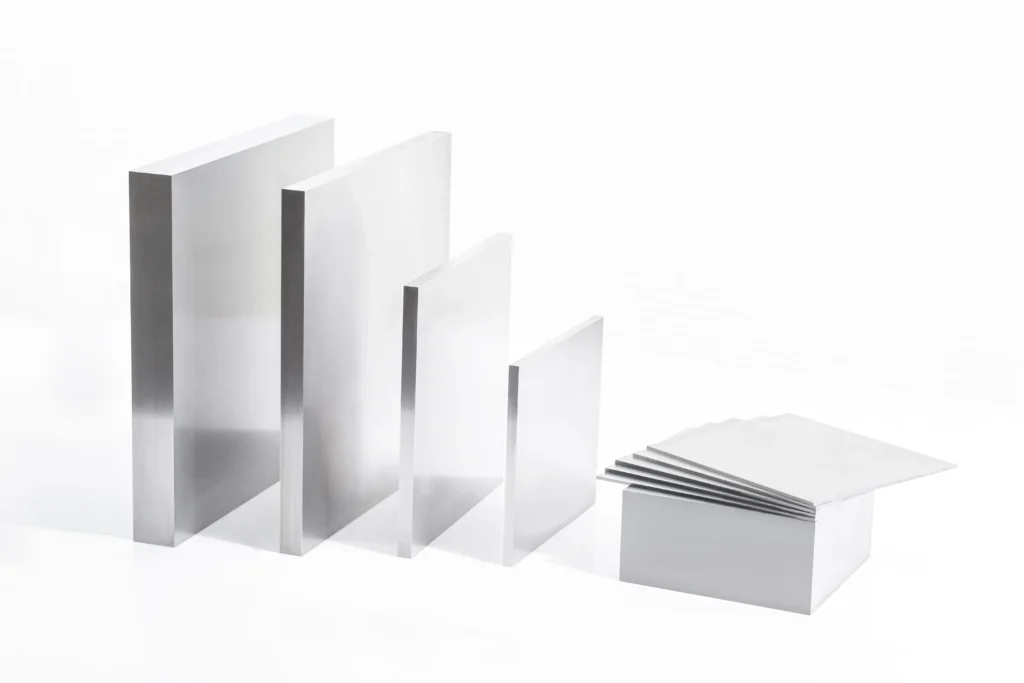
構成と特徴
Carbide plates are primarily composed of tungsten carbide, which is bonded with a metal binder, usually cobalt. The exact composition can vary depending on the desired properties of the plate.
| コンポーネント | 役割 |
|---|---|
| 炭化タングステン | 硬度と耐摩耗性を提供する。 |
| コバルト・バインダー | Binds the carbide particles together and provides toughness. |
| 炭化チタン | Sometimes added to improve resistance to oxidation and high-temperature wear. |
| 炭化タンタル | Added to improve resistance to thermal shock. |
硬度、強度、耐摩耗性
The performance of a carbide plate is often evaluated based on its hardness, strength, and wear resistance. These factors are crucial in determining the plate’s suitability for specific applications.
| プロパティ | 説明 |
|---|---|
| 硬度(HRA) | Typically ranges from 85 to 95 HRA. Higher hardness means better wear resistance but lower toughness. |
| 圧縮強度 | Can exceed 4000 MPa, allowing carbide plates to withstand high pressures. |
| 耐摩耗性 | Measured by the volume loss in a standard wear test; carbide plates typically exhibit very low wear rates. |
| 破壊靭性 | Indicates the plate’s ability to resist crack propagation; higher values mean better resistance to cracking. |
仕様、サイズ、形状、規格
Carbide plates come in various sizes, shapes, and standards, depending on their intended application. Here’s a breakdown of common specifications:
| 仕様 | 説明 |
|---|---|
| 標準サイズ | Common sizes include 100x100mm, 150x150mm, and 200x200mm. |
| 厚さ | Typically ranges from 1mm to 50mm, depending on the application. |
| シェイプス | Rectangular, square, and custom shapes are available. |
| 規格 | Plates are often manufactured to industry standards such as ISO, ASTM, and DIN. |
| 表面仕上げ | Available in both polished and unpolished finishes. |
| 寛容 | Dimensional tolerances can be as tight as ±0.01mm. |
| エッジの準備 | Sharp, chamfered, or rounded edges are available depending on the application. |
サプライヤーと価格詳細
The market for carbide plates is vast, with numerous suppliers offering a wide range of products. Here’s a
look at some key suppliers and their pricing:
| サプライヤー | 所在地 | 製品範囲 | 価格帯(kgあたり) |
|---|---|---|---|
| ケナメタル | アメリカ | Ground, coated, and custom plates | $100 – $250 |
| サンドビック | スウェーデン | Sintered, ground, and coated plates | $120 – $280 |
| 株洲超硬合金 | 中国 | Sintered and ground plates | $80 – $200 |
| 三菱マテリアル | 日本 | High-performance plates | $130 – $300 |
| 住友電工 | 日本 | Coated and uncoated plates | $110 – $270 |
| Tungsten Carbide India | インド | Custom and standard plates | $90 – $220 |
| セラチジット | ルクセンブルク | Wear parts and cutting tool plates | $150 – $320 |
| ハイペリオン・マテリアル | アメリカ | Precision-ground plates | $140 – $310 |
| 京セラ | 日本 | High-toughness plates | $125 – $290 |
| H.C. Starck Tungsten | ドイツ | Specialty and customized plates | $130 – $300 |
How to Choose the Right Carbide Plate
Selecting the right carbide plate can be daunting, given the wide range of options available. Here are some factors to consider:
| ファクター | 考察 |
|---|---|
| 申し込み | Determine the specific use case—cutting, shaping, wear parts, etc. |
| 材料特性 | 用途に応じて、硬度、靭性、耐摩耗性を考慮する。 |
| コーティング | Decide whether a coated plate is necessary for additional wear resistance or corrosion protection. |
| サイズと形状 | Ensure the plate meets the dimensional requirements of your application. |
| サプライヤーの評判 | Consider the supplier’s reputation for quality and reliability. |
| コスト | Balance the cost with the performance requirements. |
| カスタマイズの必要性 | Determine if you need a custom plate to meet specific requirements. |
| 環境条件 | Consider the operating environment—temperature, corrosion, etc. |
利点と限界を比較する
Carbide plates offer several advantages, but they also have some limitations. Here’s a comparison:
| メリット | 制限 |
|---|---|
| 高い耐摩耗性 | 他の素材より高価かもしれない。 |
| 卓越した硬度 | High hardness can lead to brittleness in some applications. |
| Good Thermal Stability | Limited ductility compared to other materials like steel. |
| 長寿命 | Requires specialized equipment for machining and handling. |
| 用途の多様性 | Heavier than some alternatives, which may be a concern in certain applications. |
よくあるご質問
Q: What are carbide plates made of?
A: Carbide plates are primarily made from tungsten carbide, which is bonded with a metal binder, typically cobalt. The exact composition can vary depending on the desired properties of the plate.
Q: What are the main uses of carbide plates?
A: Carbide plates are used in various applications, including metal cutting, woodworking, mining, construction, aerospace, automotive, and medical devices. Their hardness and wear resistance make them ideal for these demanding tasks.
Q: How do I choose the right carbide plate for my application?
A: To choose the right carbide plate, consider factors such as the specific application, material properties, coating, size, shape, supplier reputation, cost, and environmental conditions.
Q: Are there different types of carbide plates?
A: Yes, there are several types of carbide plates, including sintered, ground, coated, cemented, and micrograin carbide plates, each with unique properties suited for different applications.
Q: What is the typical hardness of a carbide plate?
A: The hardness of a carbide plate typically ranges from 85 to 95 HRA, depending on the specific type and composition.
Q: Can carbide plates be customized?
A: Yes, carbide plates can be customized in terms of size, shape, composition, and other properties to meet specific requirements.
Q: How much do carbide plates cost?
A: The cost of carbide plates varies depending on the type, size, and supplier, but prices typically range from $80 to $320 per kilogram.
結論
超硬プレート are a critical component in a wide range of industrial applications, from cutting tools to wear parts. Their unique combination of hardness, toughness, and wear resistance makes them indispensable in environments where other materials would quickly fail. By understanding the different types of carbide plates, their properties, and how to select the right one, you can ensure optimal performance and longevity in your application.
Whether you’re machining metals, cutting wood, or manufacturing components for the aerospace industry, carbide plates are the key to success. With the right knowledge and careful selection, you can harness the power of these remarkable materials to achieve superior results in your projects.

